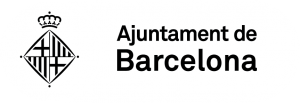Throughout 2021, our Policy and Global Development team consolidated and expanded strategic partnerships with major global health players in Latin America and the Caribbean
According to PAHO, one third of the Latin American population faces obstacles to accessing health care, and the region remains the most unequal place in the world.
According to PAHO, one third of the Latin American population faces obstacles to accessing health care, and the region remains the most unequal place in the world.
“A significant part of the Latin American population is trapped in a vicious cycle of poverty and disease due to unmet medical needs,” Carolina Batista, ISGlobal’s focal point in Latin America and the Caribbean, wrote recently. The COVID-19 pandemic has only made things worse by further deepening pre-existing inequalities in the region. And yet, Latin America’s public health expertise is broadly recognised: it has successfully implemented inclusive health policies, scaled up access to HIV and tuberculosis care, and developed innovative responses to endemic vector-borne outbreaks. “This creates a strategic opportunity for building collaborations that leverage this knowledge and help to bridge the gap between unmet health needs and global health progress,” says Leire Pajín, director of Global Development.

Building on previous success, looking for new opportunities
Our Policy and Global Development team worked hard throughout 2021 to expand the dialogue with global health players in Latin America. For example, we took part in high-level discussions and fora in the region, including the co-leadership (together with the Lancet Migration Initiative and the Pan American Health Organisation) of the Health and Migration Working Group for the upcoming 4th Ibero-American Forum on Migration.
We are also collaborating with the Ibero-American General Secretariat (SEGIB) on the establishment of an Ibero-American Epidemiology Observatory in order to improve preparedness and response to health emergencies in the region. Along similar lines, we signed an institutional agreement with Brazil’s Oswaldo Cruz Foundation (Fiocruz) to formalise ongoing joint activities and chart a path for new areas of collaboration. And our successful experience with the Chagas Platform in Bolivia, where we first began our research and translation activities, has allowed us to scale up the model to the rest of the country and extend it to Paraguay.
Our cooperation with Latin America goes beyond a common language and history—it reflects our belief in international cooperation as a means to achieve global health impact.










